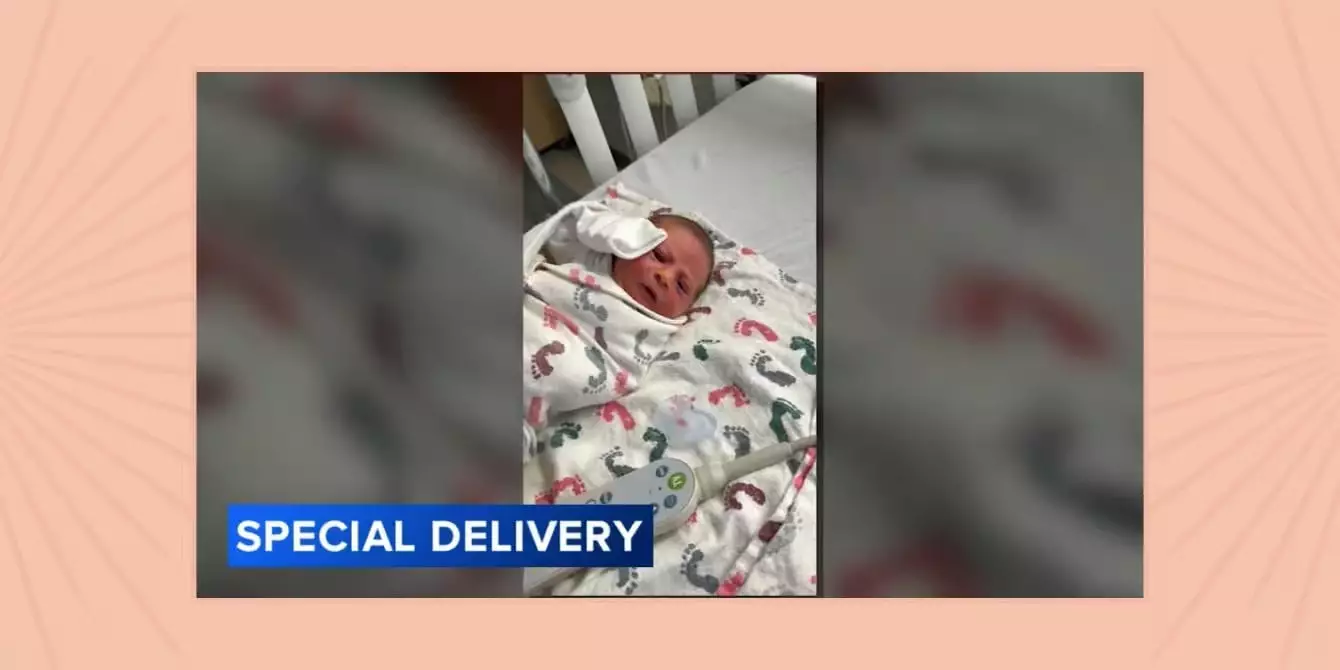Life often presents us with paradoxes—moments where profound sorrow intertwines with unexpected happiness. Such complexities challenge us to see beyond the surface, recognizing how love persists even in our darkest hours. The story of Elissa Danielle West epitomizes this emotional juxtaposition: on a day overshadowed by the recent loss of her mother, she delivered her grandson from the roadside in a life-altering emergency. This incident transcends a mere recount of event; it symbolizes the resilience of love and the extraordinary ways human connection endures through hardship.
This narrative reveals that life’s tragedies are not isolated events but woven into the fabric of our existence, shaping a perspective that embraces both pain and hope. For many, including myself, such stories invoke personal reflection—memories of loved ones lost, yet still present in spirit, guiding us. When my grandmother, on her deathbed, met my unborn son from the hospital, it exemplified a universal truth: love is never truly gone; it merely transforms, finding new channels in our lives.
Unexpected Births as Symbols of Renewal
Astonishingly, Noah’s birth took place moments after the heartbreaking news of his great-grandmother’s passing. What initially appears as coincidence soon reveals itself as something more profound—an emblem of life’s unpredictable cycles. Elissa and her daughter Alysa describe how, amid immense grief, the quick response of emergency services turned a potentially tragic situation into a miraculous event. Elissa’s instinctual act of giving birth in her car was extraordinary and signifies a deeper truth: life often arrives when we least expect it, often bearing messages of hope and continuity.
Naming their son Noah—a name meaning “comfort”—was a deliberate act of symbolism. The newborn’s calm demeanor mirrored their need for solace, becoming a gentle balm for their collective wounds. In a way, Noah’s arrival embodies the paradox of human existence: joy emerging precisely in moments of profound grief, reminding us that suffering does not preclude happiness. The timing of his birth, coinciding with his great-grandmother’s funeral, underscores how life’s new beginnings often encapsulate endings, emphasizing that mortality is not the final chapter but part of an ongoing story.
The Science of Mixed Emotions and the Resilience of Love
Psychology and research back these emotional realities, illustrating that humans are capable of experiencing simultaneous feelings of happiness and sadness. Studies in mental health journals have demonstrated that grief and joy can coexist seamlessly—these feelings are not mutually exclusive but are instead complex threads woven into our emotional tapestry. This understanding offers validation for those navigating loss, helping them see that feeling sorrow doesn’t diminish their capacity for happiness; rather, it enhances their emotional depth and resilience.
Furthermore, scientific research suggests that profound loss can influence our decisions about family and new beginnings. Experiencing the death of a parent often triggers an instinctual desire to nurture life anew, seeking continuity amidst loss. This phenomenon aligns with the emotional narrative of Noah’s birth: the drive to forge hope from despair, creating new life as a testament to love’s unbreakable power.
Love’s Transcendent Power—Beyond Life and Death
The enduring presence of love becomes evident when considering how families cope with grief. For the West family, Noah isn’t just a baby—he’s a living testament to the love that remains. Elissa’s acknowledgment that her mother’s spirit is alive in her grandson highlights a profound truth: love transcends physical absence, finding new forms and expressions. Though her mother will not hold Noah physically, her essence—her kindness, her love—are imprinted in this new life.
This reflection reveals a broader truth about human existence: love is not confined to the moment or the physical realm. It evolves, persists, and infuses our lives with meaning. Noah’s arrival, framed by loss, becomes a powerful metaphor for renewal and hope, illustrating that life persists—not in spite of tragedy but alongside it, adding layers of depth and beauty to our existence.
The story of Elissa and Noah is a testament to the resilience of the human spirit and the transformative power of love. It encourages us to accept the coexistence of pain and happiness, recognizing that life’s most profound moments are often interwoven with sorrow, yet simultaneously filled with hope. In embracing this truth, we empower ourselves to face future hardships with the knowledge that love’s enduring force can lead us toward healing and new beginnings, no matter how dark the night.

